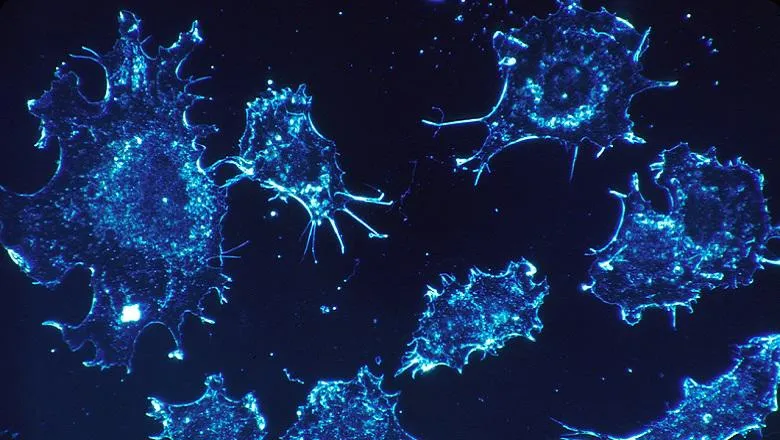25 November 2021
Using innate immune defence therapeutically against cancer
New research shows how a naturally occurring molecule in the immune system can be used as a therapeutic to destroy cancer cells.

Rapidly increasing cells in the human body continuously generate mutations that may lead to cancer. Although, this is a naturally progressive phenomenon, and the risk of cancer increases with age, the healthy body has a natural cancer surveillance program which protects the body from developing cancer cells. When this natural defence fails, reimposing therapeutically the power of the immune system can combat cancer.
Major developments in immune based anticancer therapies have taken place during the last decade. However, there is a need for further development as only a subset of the patient population can respond to the most successful ones and treatment can be toxic. Crucially, there is a need to induce the immune system to detect emerging cancer cells, to kill them and to ensure long-term protection against cancer recurrences without harm to the patient.
In previous work Professor Livio Mallucci, Visiting Professor in the School of Cancer and Pharmaceutical Sciences, and Dr Valerie Wells, now at NYU London, found an immunomolecule referred to as bGBP (beta-galactoside binding protein) which could be the key to targeting and destroying cancer cells, including those with developed or innate resistance to treatments. They showed that bGBP is a cytokine that can kill cancer cells and induce protection from recurring cancer.
Now, in work published this month in Cancer Gene Therapy, Professor Mallucci and Dr Wells investigated mechanisms that regulate signalling and gene expression to control cell proliferation The findings show how the bGBP immunomolecule operates to enforce an intrinsic growth restrictive process (a checkpoint) that while controlling the replicative balance of normal cells, in cancer cells can induce death.
The researchers stress how these physiological mechanisms that the immune system uses for cancer surveillance can now be transposed to therapeutic use. Patients with the most aggressive types of cancer currently untreatable such as Kras-colorectal carcinoma, triple negative breast cancer and others will benefit most from these treatments. They also stress that using an immunomolecule to do therapeutically what it naturally does as defence in the healthy body bodes well in clinical trials. A natural component of the immune system, bGBP is devoid of the harmful collaterals of pharmacological agents.
“Our work highlights the potential importance of approaching cancer by natural means and provides a rationale for understanding how a process that naturally controls cell proliferation has extended anti-cancer potentials," said lead author Professor Livio Mallucci and co-author Dr Valerie Wells.
